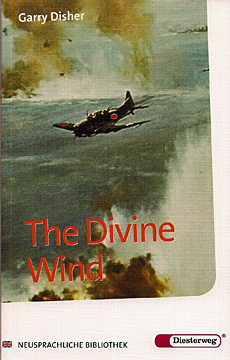4. Evaluation
"You could say that this is a story about friendship, and
the betrayal of friendship, and friendship lost and regained."
(TDW. 'Quest for Paradise')
Although this quotation reveals the core of the story yet it does not
meet the great variety of aspects the novel deals with. Whereas its
setting is typically Australian most of the themes are basically of
universal significance. The geographical and historical setting is Broome
(WA) shortly before and during the early years of World War II. At that
time the atmosphere in the town is characterized by its pearl fishing
industry, its flimsy tin buildings, red dust, mangroves and flying-boats.
The Japanese pearl divers live in Chinatown, a part of the city that suggests a peaceful multicultural society. However, these appearences are deceptive, for even in Broome latent racial discrimination and prejudices against Aborigines and Asians lie in wait just underneath the surface, which the war finally makes rise and which engender vague apprehensions.
Against this typical Australian background Disher treats of a number of universal themes, or as Jenny Pausacker puts it in her review of the book: "like all good story tellers, he centres his stories around grand and enduring themes." (ABR)
Firstly Garry Disher´s novel is a psychological study, a rites-of-passage or initiation story. The young first person narrator relates his transition from an optimistic and naive teenager in love with Mitsy, the daugther of one of his father´s Japanese pearl divers, through periods of disillusionment and doubt about his personal disposition, to the maturity of a young man. Through hard and bitter experiences he finally discovers himself and achieves an understanding of the complex and complicated connections between interpersonal and social relations, particularly in times of war.

Garry Disher, The Divine Wind
INFORMATIVE ITEMS
Secondly it is a family tragedy set against the background of war with its impact on society and the individual, its traumatic effects, its consequences of discrimination and isolation, its disruption of family life caused by internment, war captivity, flight and evacuation, its heavy death toll, and its wounded, mutilated, and missing people.
Finally the novel is an excellent fictional work dealing with "the old verities and truths of the heart, the old universal truths lacking which any story is ephemeral and doomed"(Faulkner) - love and hatred, treason and loyalty, jealousy and friendship, fear and hope. And if Faulkner´s statement is true, there will be no doubt that Disher´s novel will endure the test of time.
Contact: info@new-english-readers.de
